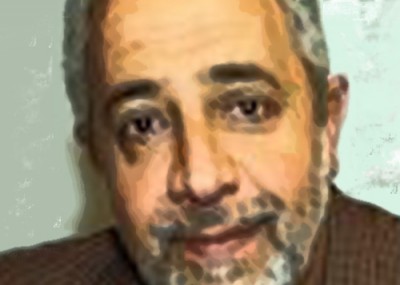 The Muslim American Society (MAS) was created as a branch of the Muslim Brotherhood in America, and continues to serve that function today, a man who once was one of the most influential Muslim political leaders testified in a Virginia courtroom Wednesday.
The Muslim American Society (MAS) was created as a branch of the Muslim Brotherhood in America, and continues to serve that function today, a man who once was one of the most influential Muslim political leaders testified in a Virginia courtroom Wednesday.
"Everyone knows that MAS is the Muslim Brotherhood," Abdurrahman Alamoudi told federal investigators in a January interview from a federal correctional facility. On the witness stand, Alamoudi claimed not to remember everything he said, but accepted that he had made the statement after government lawyers showed him records of the interview.
Alamoudi promised "to testify truthfully and completely at any grand juries, trials or other proceedings in the United States" as part of a 2004 guilty plea. He admitted engaging in illegal transactions with Libya and facilitating a Libyan plot to assassinate then-Saudi Crown Prince Abdullah.
His testimony Wednesday came as part of a civil suit brought by Jamal Abusamhadaneh against the government demanding he be naturalized as an American citizen. His application was denied after officials learned he lied about being associated with the Muslim American Society, failing to disclose the association on his naturalization application. In a subsequent interview, an immigration official further pressed him to reveal his connection to MAS or the Brotherhood, but he repeatedly denied ties to each.
Alamoudi, who had signed a work visa for Abusamhadaneh, was the original source for information about the plaintiff's Brotherhood ties. Abusamhadaneh claims he was following the advice of his attorney at the time, Ashraf Nubani, who told him affiliations with religious organizations do not need to be disclosed to the government. He also says he never was a dues paying MAS member, although he acknowledges attending many of the organization's events.
Nubani testified that neither the Muslim Brotherhood nor MAS were political organizations, so he didn't think his client had any reason to disclose such ties, were they to exist. Rather, he claimed that both organizations were simply non-violent religious organizations that believed "Islam should not be confined to one aspect of life" and "in Islam church and state aren't separate."
Alamoudi at times appeared reluctant to answer questions during his testimony, despite his cooperation pledge. Last summer, a judge reduced his 23-year prison sentence by six years, apparently due to cooperation Alamoudi previously provided. Court papers related to that sentencing reduction remain under seal.
He nodded and waved at members of the Muslim community in the courtroom gallery who were supporting Abusamhadaneh. As he left the courtroom, he called out "As-Salaam Aleikum," or "Peace be unto you." Some in the gallery responded, "Wa-Alaikum-Salaam," or "Wa-Alaikum-Salaam."
His disclosure about MAS is not new. Some MAS officials admitted as much in a 2004 Chicago Tribune article. And prosecutors wrote in 2008 that "MAS was founded as the overt arm of the Muslim Brotherhood in America."
In the Hamas-support prosecution of the Holy Land Foundation for Relief and Development, investigators found a telephone book listing the names and numbers of the Muslim Brotherhood leadership in the United States. "Members of the Board of Directors" appeared on the first page with 15 names. Among those names are Ahmad Elkadi, Jamal Badawi, and Omar Soubani: MAS's founding incorporators.
But Alamoudi's testimony is significant because he acknowledges being part of the Brotherhood and was active when MAS was formed in 1993. In addition, MAS officials have claimed that they may have had roots in the Brotherhood, but those dissipated over time.
It is believed to be his first courtroom testimony since promising to cooperate, although he was brought to Tampa in 2005 during the prosecution of Palestinian Islamic Jihad board member Sami Al-Arian. Alamoudi was not called during the case.
He apparently told prosecutors that Al-Arian's prominent role in Islamic Jihad was common knowledge in Islamist circles.
Alamoudi led the American Muslim Council and enjoyed political clout that led him to be courted by Democrats and Republicans in Washington, including the White House. But his support for jihad was on public display in 2000. During a rally in Lafayette Park across the street from the White House, he defiantly expressed his support for Hamas and Hizballah.
Four years earlier, he told a conference that Arabs in the United States should not pray for Allah to destroy the country. Rather, they needed to be less confrontational. "There is nowhere for Muslims to be violent in America, no where at all. We have other means to do it. You can be violent anywhere else but in America."


